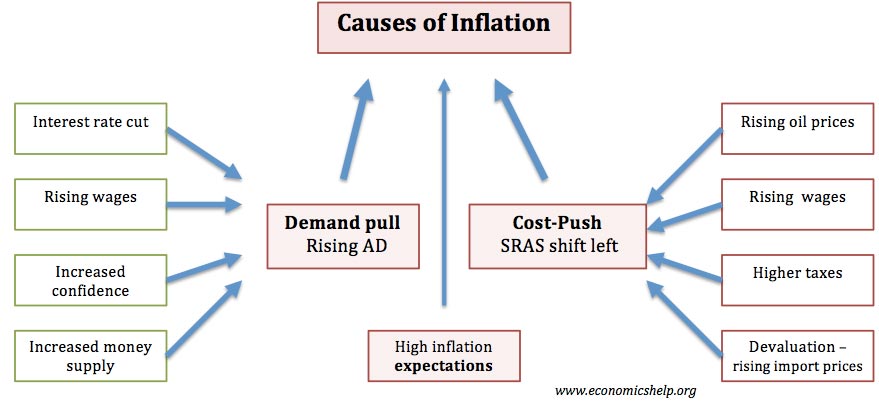What Causes Inflation Video
Hey there, fellow economics enthusiasts!
Do you know what's worse than no money? Having money that's worth nothing. That's right, we're talking about the dreaded "I" word: inflation.
But fear not, my friends, for in this post, we're going to dive deep into the causes of inflation and how we can control it. So hold on to your wallets and let's get started!
Inflation, Defined
First, let's make sure we're all on the same page when it comes to what inflation actually is. Inflation is the rate at which the general level of prices for goods and services in an economy is rising, and subsequently, the purchasing power of currency is falling.
Put simply, inflation means things are getting more expensive, and the money in our pockets is worth less.
Causes of Inflation
Now, on to the juicy stuff: what causes inflation?
There are several factors that can contribute to inflation:
- Increased Demand: When the demand for goods and services in an economy increases, so does their price, leading to inflation.
- Cost Push: When the cost of input goods or labor increases, producers must raise their prices to maintain their margins, leading to inflation.
- Expansion of Money Supply: When a central bank prints more money, the supply of money increases, leading to a decrease in its value and subsequent inflation.
Of course, these factors don't exist in a vacuum, and often interact with and compound each other. For example, when the money supply increases, it may lead to greater demand for goods and services, which in turn leads to increased prices and inflation.

Controlling Inflation
Now that we understand what causes inflation, how do we control it?
One way is through monetary policy, which is when a central bank manipulates the money supply and interest rates to control inflation. A central bank can tighten monetary policy by raising interest rates, which decreases demand for goods and services, and subsequently reduces inflation.
A government can also use fiscal policy, which involves adjusting taxes and government spending, to control inflation. If inflation is high, a government can decrease spending and increase taxes to reduce demand for goods and services and subsequently decrease prices.

The Bottom Line
Inflation may not be the most exciting topic, but it's one of the most important concepts in economics. Understanding what causes inflation and how to control it can help individuals and governments make informed decisions about their spending and economic policies.
So, the next time someone says "inflation," you can confidently say, "I know what that means!"
Thanks for reading, folks. Stay smart and stay frugal!